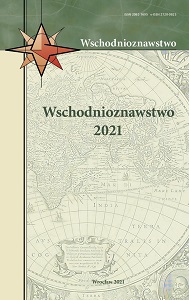„Nikdo nic neví”, czyli krótka historia czeskocieszyńskiego słupa granicznego
„Nikdo nic neví”, which is a short history of the boundary post in the Czech Republic
Author(s): Radosław ZenderowskiSubject(s): Local History / Microhistory, International relations/trade, Nationalism Studies, Politics of History/Memory
Published by: Wydawnictwo Uniwersytetu Jagiellońskiego
Keywords: Cieszyn; historical politics; divided city; nationalism; discourse;
Summary/Abstract: This article refers to an event that caused an avalanche of controversy and disputes, destroying the idyll officially decreed by local politicians in the relations between the two parts of the city divided by the state border – Cieszyn and Česky Těšin. The event was the ceremonial unveiling of a replica of the Czechoslovak boundary post from the period of the First Republic, in the center of Česky Těšin, on the occasion of the 100th anniversary of the division of Cieszyn Silesia between Czechoslovakia and Poland. The aim of the article is, firstly, to reconstruct the discourse that accompanied this event, and secondly, to analyze the local politics of memory, in which individual narratives and undertaken actions fit in. The article consists of three parts. The first presents the characteristics of Cieszyn as a city divided by a state border. The second describes an event that caused a series of deep controversies in Polish‑Czech relations. The third part analyses the content of the discourse referring to the symbolic meaning of a replica of the Czechoslovak boundary post from the period of the First Republic. It is placed in the center of Česky Těšin to commemorate the 100th anniversary of the establishment of the border dividing the city into two parts and the establishment of the youngest city of the First Republic – Česky Těšin.
Journal: Wschodnioznawstwo
- Issue Year: 2021
- Issue No: 15
- Page Range: 113-137
- Page Count: 25
- Language: Polish

